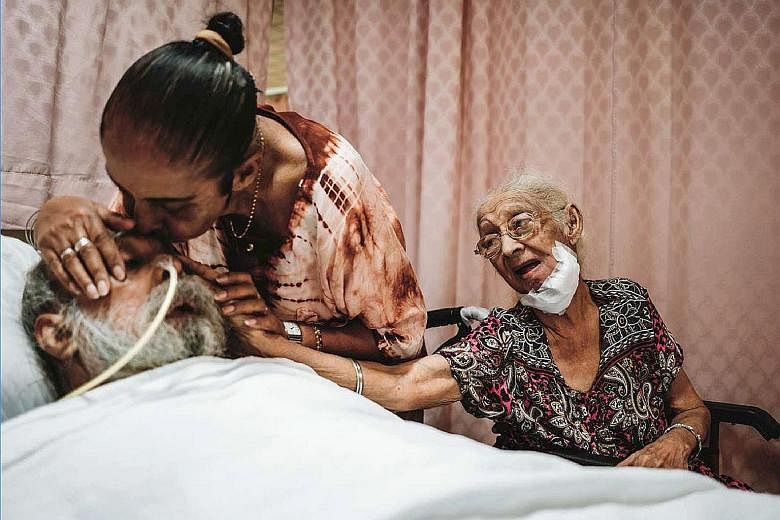More people are spending their last days at home or in hospices instead of hospitals, in part because of the bed crunch and fear of coronavirus infection, say two hospices.
Assisi Hospice and HCA Hospice Care are recording more admissions during this pandemic. The number of patients in Assisi's facility rose 15 per cent in the three months to March 31 and its home care service by 42 per cent compared with the same period last year.
"We play our part by admitting more patients. This helps to free up beds in the acute hospitals," said an Assisi spokesman. "We have enabled a larger number of patients to be cared for in their own homes during these challenging times."
HCA Hospice Care, which mostly provides care for patients at home, recorded a 12 per cent increase in referrals this month from April last year. Its chief executive Angeline Wee said this is a result of restructured and community hospitals discharging patients to cope with more Covid-19 patients.
Ms Wee said more patients are also choosing to die at home. "We do see more end-of-life patients opting to be supported at home, and families asking to discharge patients from the hospitals sooner to minimise risk of exposure."
The Ministry of Health (MOH) told The Sunday Times yesterday that about 20 palliative patients from the Bright Vision and Yishun Community hospitals have been transferred to other institutions for hospice care so that the community hospitals have more capacity.
"The transfer of the patients took into account each patient's care needs and whether the new venue would suitably provide the required care for the patient," said an MOH spokesman. "The transfer was also done in close consultation with the patient and family."
There are only two inpatient hospices in Singapore - Assisi and Dover Park - but some hospitals also have palliative wards.
Unlike nursing homes, which have banned all visitors, hospices allow patients to receive between two and four visitors. The Assisi and Dover Park hospices allow up to two visitors for each patient, or up to four if a patient is reaching the "active dying" phase when he has just a few days or hours left.
Assisi's spokesman said the changes to its visitor policy have had a great impact on patients and their families: "Our inpatient patients have limited days, and visits from their loved ones are extremely precious."
The restrictions are particularly difficult for larger families that face decisions on who gets to visit, he added. The hospices said patients understand the need for heightened measures, so they are encouraged to keep interacting with family members via phone or video calls.
Mr Timothy Liu, chief executive of Dover Park Hospice, said it has not seen an increase in occupancy rates. But he said the measures have reduced patients' support systems, including religious groups and extended family, resulting in feelings of disappointment or unease.
He added that there is a need to be more creative about how patients can continue to be supported emotionally, especially those who wish to make full use of their remaining time.
Some may want to enjoy a cup of coffee at a coffee shop with friends, return to their hometown overseas or take a family portrait with extended family members - all of which are hard to do at this time.












